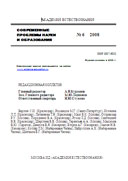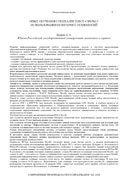PDF-версия статьи


|
Amu Darya and Syr Darya originates in the mountains, so the main reservoirs and hydroelectric stations are located on the territory of Kyrgyzstan and Tajikistan allowing them to regulate the flow of countries ranging downstream. System of reservoirs and canals built in Soviet times, implied cooperation republics of Tajikistan and Kyrgyzstan store water in winter to direct it in the summer irrigation canals in Uzbekistan, Turkmenistan and Kazakhstan. As a result Tajikistan and Kyrgyzstan could not use the water to generate electricity in winter instead the «downstream» countries provided them with energy. Today, the system continues to operate, but the rising cost of natural hydrocarbons provokes desire of «upstream» countries do not spend money on the purchase of expensive energy, and use water to generate electricity.
Rogun and Kambarata become the most discussed projects related to the water problem in Central Asia. Kambarata hydroelectric station which will produce 1,900 MW will be built on the Naryn River, which merges with Karadarya forms the Syr Darya. It should become the most powerful hydroelectric in Kyrgyzstan, which will enable him to supply electricity for export. Tajikistan’s Rogun project is even more ambitious, it plans to build hydroelectric station capacity of 3,600 MW on the Vakhsh River which will equal 13,1 billion KW/year. On September 7th during the visit to Kazakhstan the president of Uzbekistan Islam Karimov said such projects could lead to «not just serious confrontation, but even wars» [1]. Both projects involve the location of hydropower plants upstream than the existing large reservoir because these hydroelectric stations cannot provide seasonal water supply. Thus, for the «downstream» more realistic threat to economic than environmental. Uzbekistan the most actively opposed the construction of power plants, have several reasons for concern. Firstly, water shortage will hurt the poor population of this country, even minor fluctuations in stock will bring great damages. Second, cotton is the basis of the Uzbek economy, to its growing implicated in virtually all segments of the population, especially during harvest.
As the part of Central Asia Kazakhstan is committed to a collegial resolution of all issues through negotiations. Kazakhstan’s President Nursultan Nazarbayev speaking at the Shanghai Cooperation Organization summit in Bishkek, Kyrgyzstan, said that Central Asia countries had to resolve water disputes by themselves. «There is a need for an open dialog on water issues in the region. Nobody will solve the problems for us. We have to come to a consensus ourselves,» - N.Nazarbayev emphasized [2].
In our opinion, in resolving disputes over trans-border water resources international norms and concepts should be used. And we support the words of Kazakhstan’s Foreign Minister Yerlan Idrisov who said «The countries located upstream of a water body should not infringe on the economic interests and rights of the countries downstream, and vice versa. There are international conventions that prescribe that the parties should negotiate a mutually acceptable use of the water resources» [3].
Literatures:
1. www.economist.com/node/21563764 html
2. http://en.tengrinews.kz/politics_sub/Nazarbayev-calls-Central-Asia-to-solve-water-issues-22796/
3. http://www.neurope.eu/article/water-energy-can-cause-serious-conflict-central-asia
ОПУБЛИКОВАНО
Iskanderov Ye.G., Mamasharipova G.A., Batirbekkyzy G., Makhatova L.T. TRANS-BORDER WATER PROBLEMS IN CENTRAL ASIA. // Современные проблемы науки и образования - 2014.-№6. (приложение "Юридические науки"). - C. 4